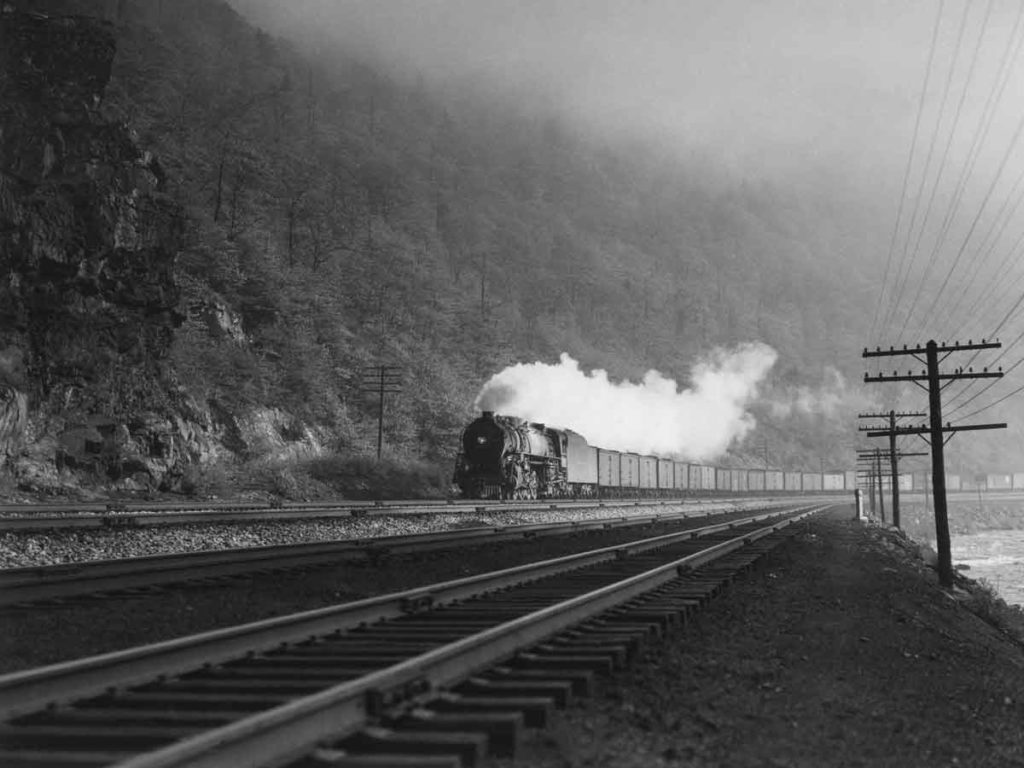
One of the Lehigh Valley’s 37 4-8-4s — which the road called the Wyoming type — swings around Hetcheltooth Curve with a westbound freight train beside the Lehigh River at Glen Onoko, Pa., in the late 1930s or early ’40s. Wayne Brumbaugh photo […]
Read More…
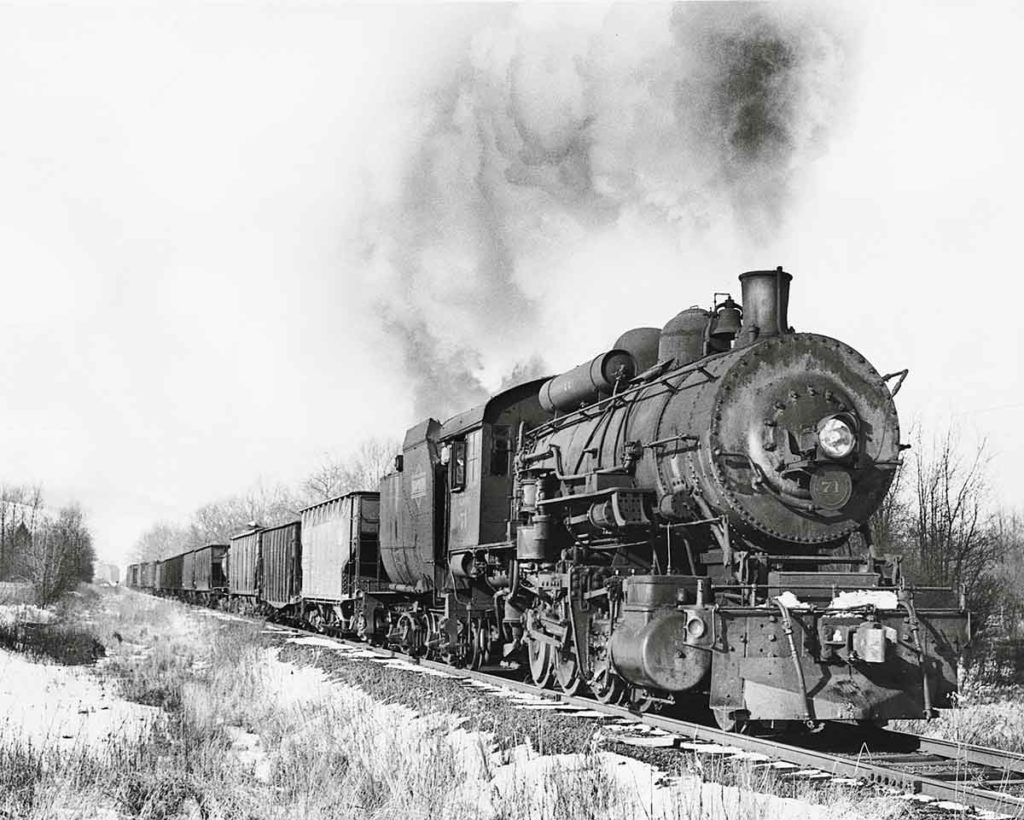
Incorporated in 1899, when the name of western Pennsylvania’s biggest city was spelled without an “h,” the Pittsburg, Shawmut & Northern ran from Brockway, Pa., to Wayland and Hornell, N.Y. Heavy construction debt forced it into receivership in 1905, and it was abandoned in 1947. Just before the end, 2-8-0 No. 71 leads a freight south […]
Read More…
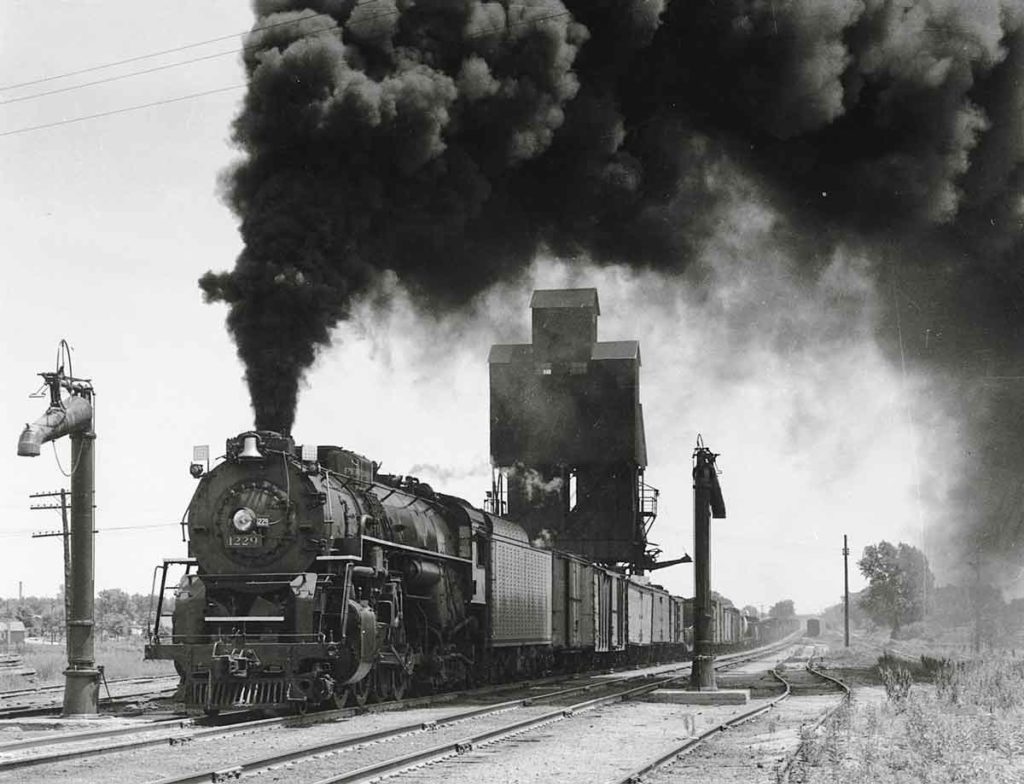
The Pere Marquette Railway’s 40 Berkshires, built by Lima during 1937–44, were the road’s last and best steam power. In this 1940s view, No. 1229 darkens the sky as it heads out of Plymouth, Mich., with a freight bound for Grand Rapids. Robert A. Hadley photo […]
Read More…
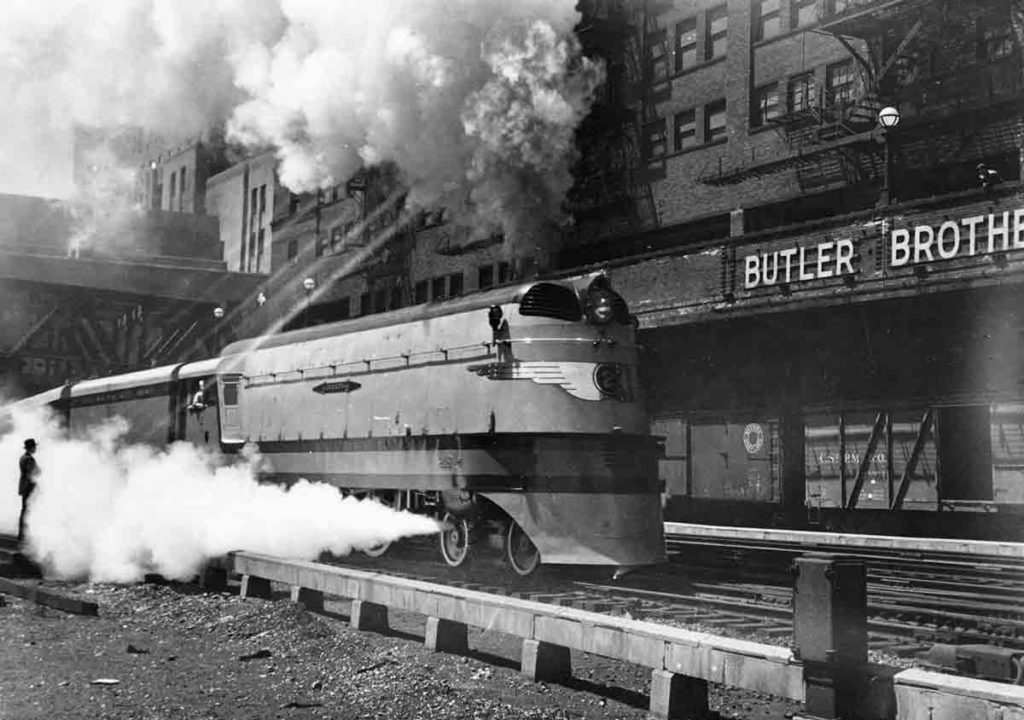
Steam from Milwaukee Road class A 4-4-2 No. 2’s cylinder cocks envelops a bystander just outside Chicago Union Station as the Hiawatha begins its dash to Minneapolis in 1935. Alexander Maxwell photo […]
Read More…
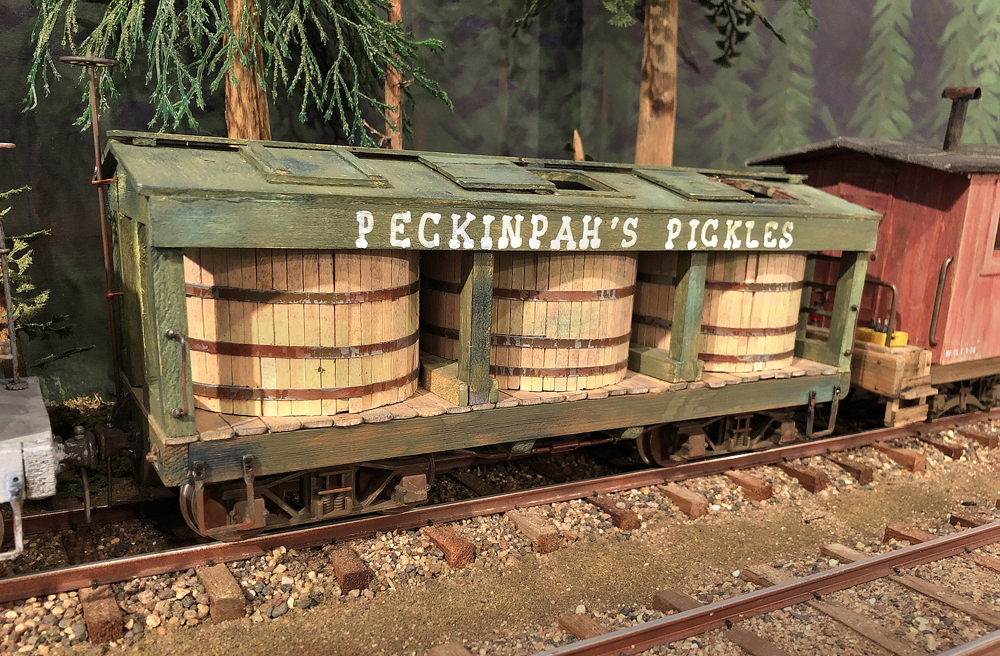
Pickle cars have a unique look, and they served a unique purpose. Cucumbers brined onboard in vats as they traveled from farm field to processing plant. I thought a pickle car would look at home on my layout. My version is loosely based on period photos; it’s not a scale model of a specific car. […]
Read More…
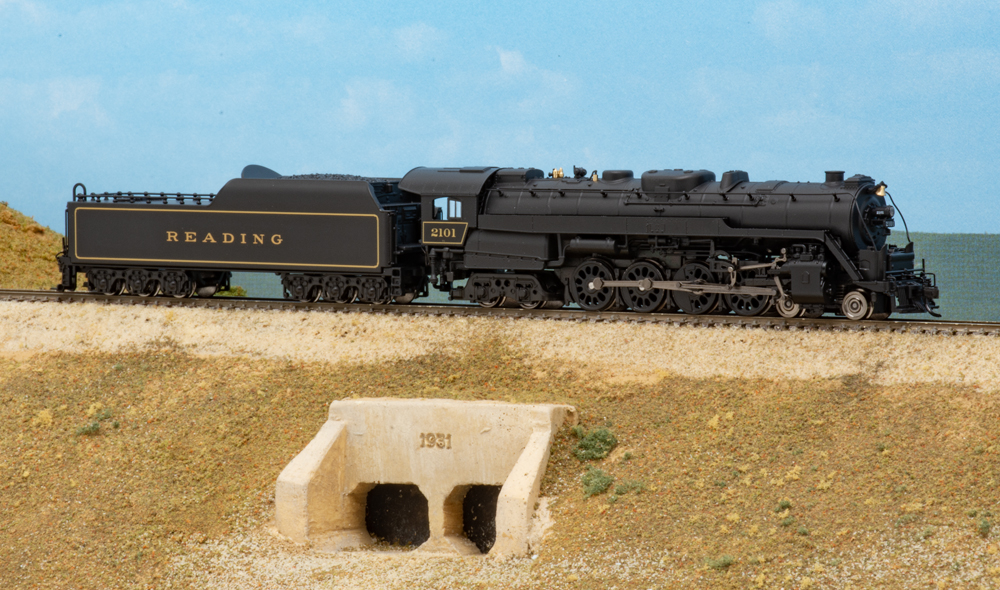
An unusual steam locomotive, born of wartime necessity, has joined Broadway Limited Imports’ N scale lineup. The Reading Co. class T-1 4-8-4 Northern, converted from 2-8-0 Consolidation locomotives near the end of World War II, mostly handled fast freight, but also pulled passenger and coal trains. In 1945, wartime restrictions kept Reading from buying new […]
Read More…
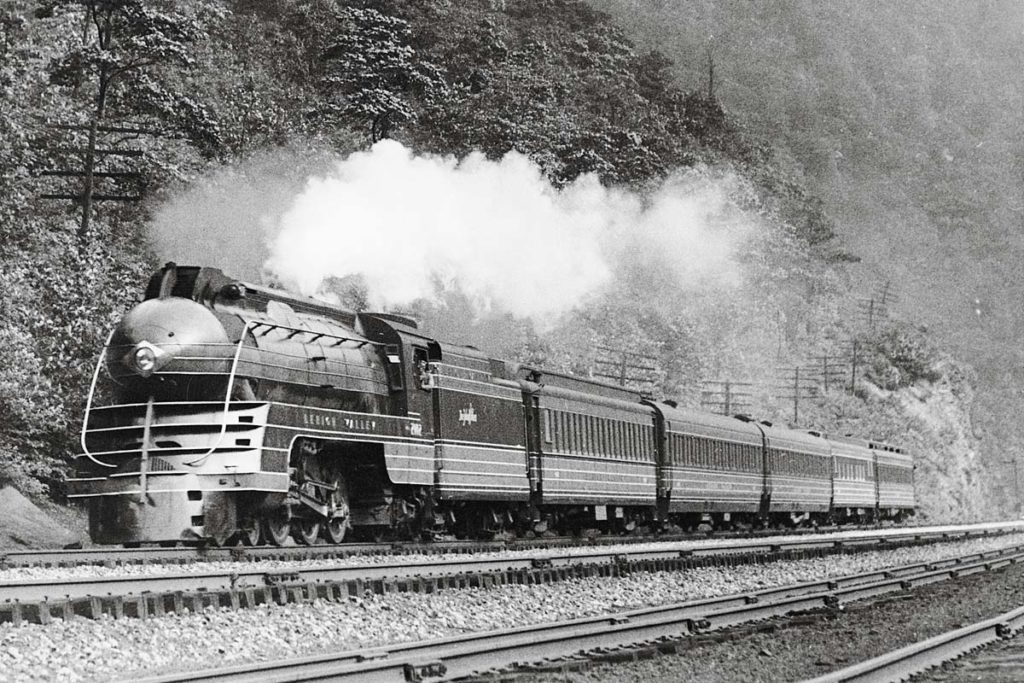
In the late 1930s and early 1940s the venerable Lehigh Valley streamlined several of its named passenger trains. This is the John Wilkes, decked in Cornell red, near Glen Onoko, Pa., in 1939. Wayne Brumbaugh photo […]
Read More…
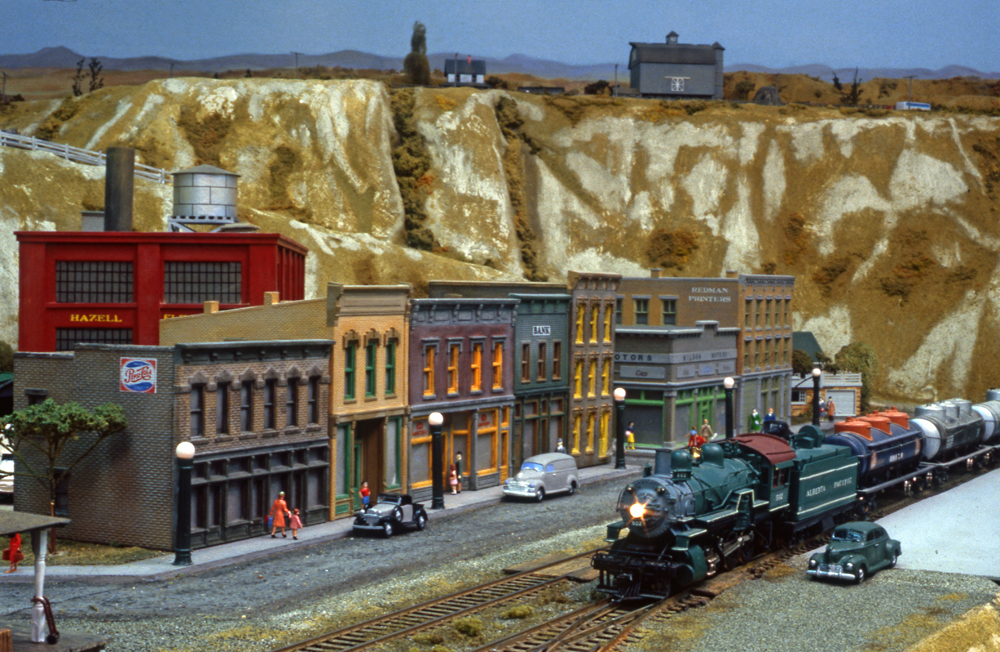
As part of our 90th anniversary celebration, we’re featuring never-before-published articles from our archives on Trains.com. This story is from 1994. Products mentioned in the article may no longer be available. I’ve had an active interest in model railroading for more than 45 years. My ultimate goal was to build a layout of my own […]
Read More…
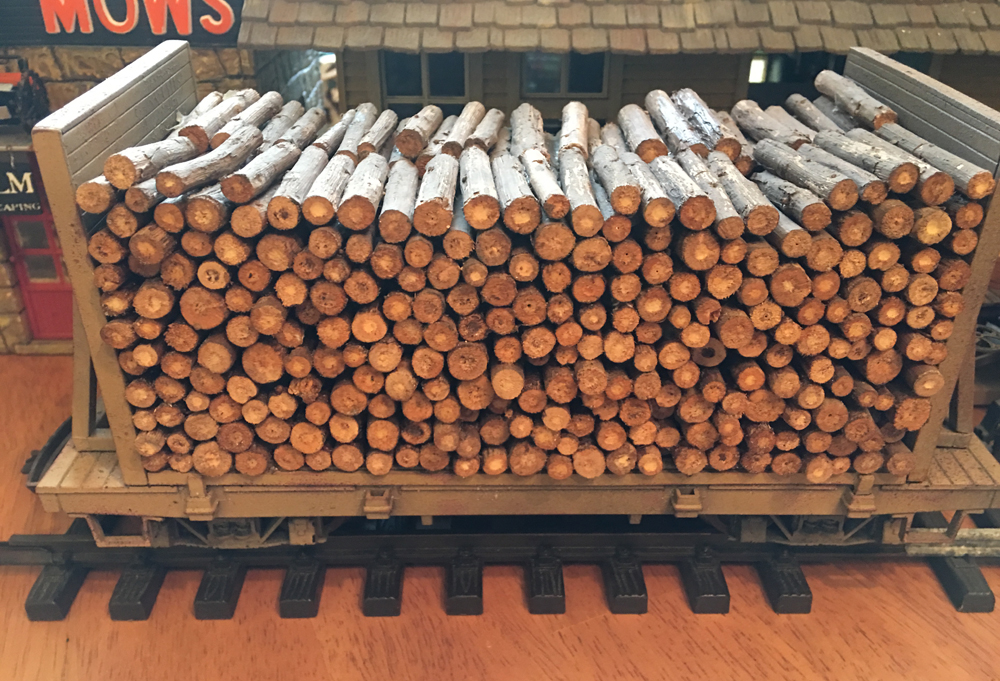
Since I own the P.T. Tubifo Lumber Co. engine for my railroads’ lumber company, I thought I’d add a pulpwood car for it to haul. I started the project with Kalamazoo flatcar and added bulkheads made from Evergreen styrene. During my work travels, I saw some weeds on the side of the road and initially […]
Read More…
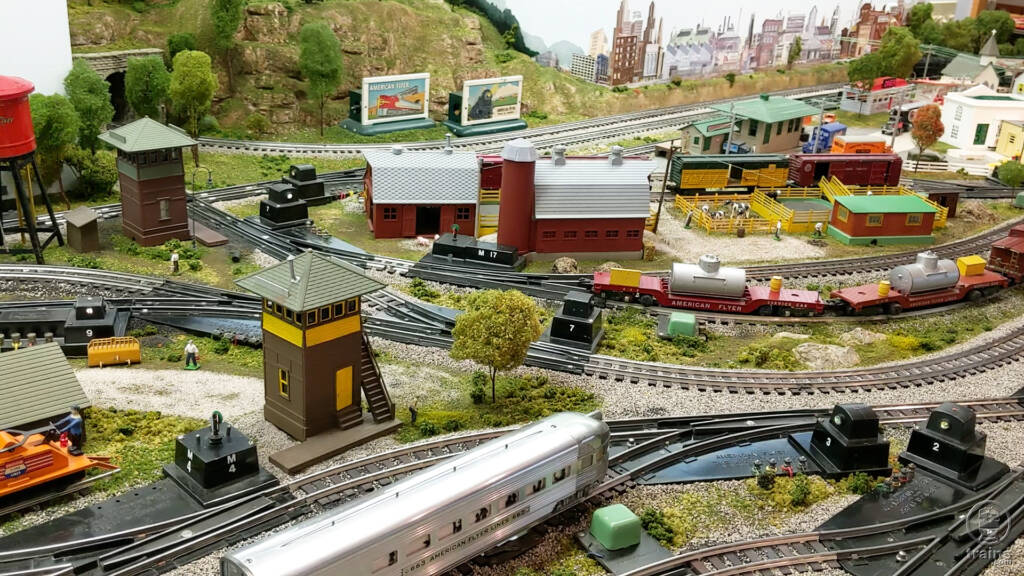
At a glance Name: Gary Wronkiewicz’s S gauge layout Dimensions: 10 x 16 feet Track: GarGraves flextrack (diameters range from 40 to 80 inches) Switches: Gilbert American Flyer Motive power: Gilbert American Flyer, S-Helper Service Rolling stock: Gilbert American Flyer Controls: Gilbert American Flyer No. 12B transformer Accessories: Gilbert American Flyer, Marx Structures: Atlas O, […]
Read More…
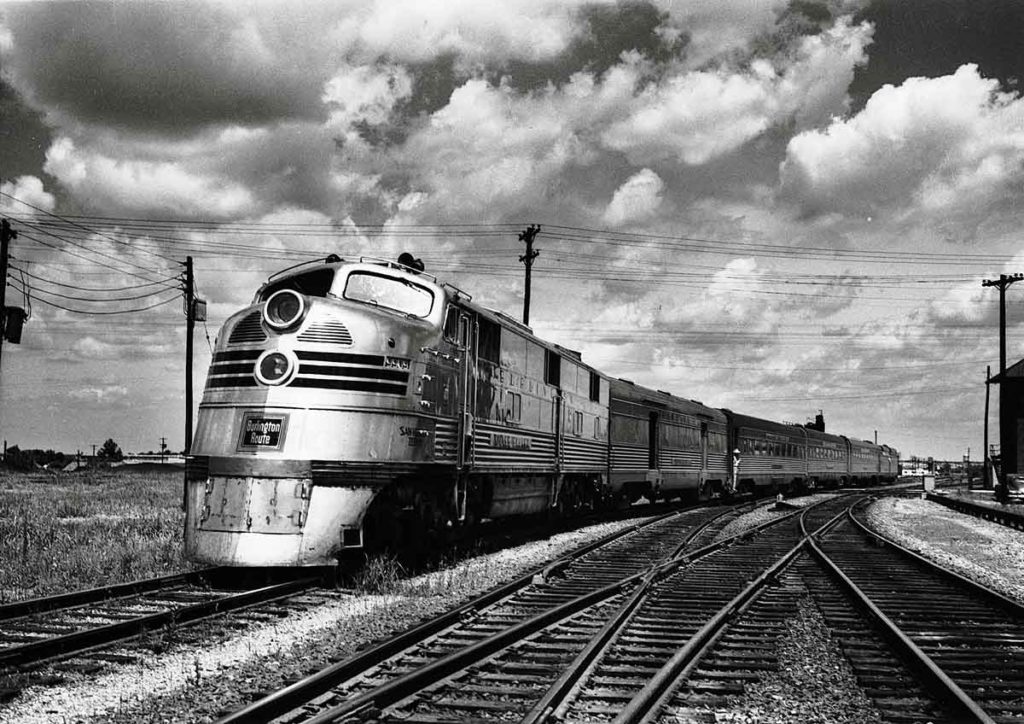
The Chicago, Burlington & Quincy Railroad, commonly known as the Burlington Route, had many other Zephyrs. While not as prestigious as the Pioneer, Twin Cities, Mark Twain, Denver and California Zephyrs, these other streamlined trainsets and services, famously named after the Greek God of the West Wind, deserve a spotlight. Sam Houston Zephyr Fort […]
Read More…
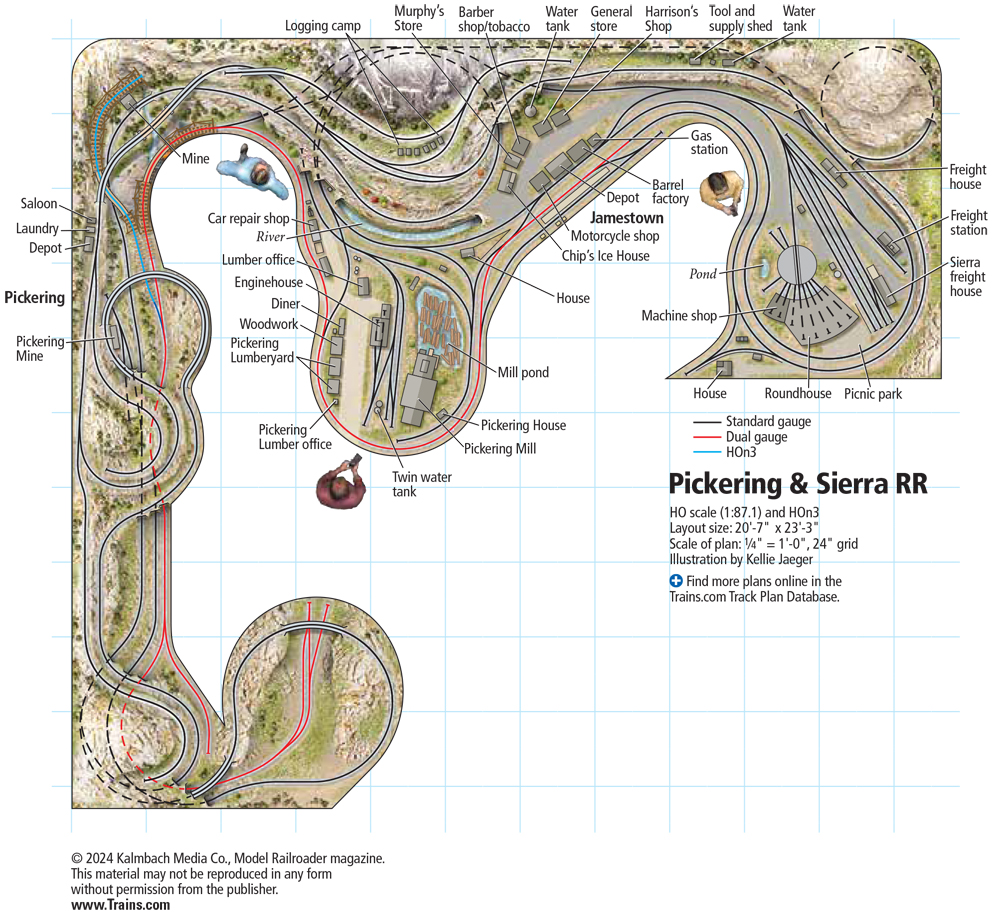
Facts and features Name: Pickering & Sierra RRScale: HO (1:87.1), HOn3, dual gauge, and HOn21⁄2 (dummy)Size: 20′-7″ x 23′-3″ Prototype: freelanced, inspired by Pickering Lumber Co. and Sierra Ry.Locale: Sierra Nevada mountainsEra: 1920s to 1940sStyle: walk-inMainline run: 220 feetMinimum radius: 17″ (logging)Minimum turnout: No.4Maximum grade: 4%Benchwork: open gridHeight: 36″ to 57″Roadbed: plywood and HomasoteTrack: […]
Read More…












